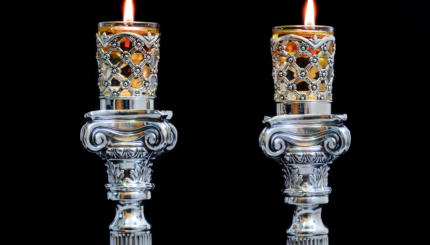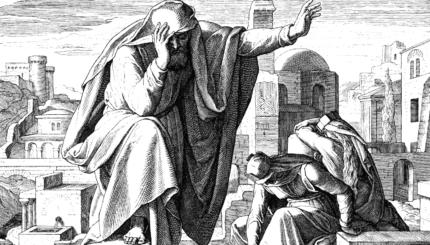Since the time of the Israelite Exodus from Egypt, Passover has been a time for families to gather together and celebrate the momentous occasion. Passover is also a time when the Jewish community must make substantial efforts to ensure that no Jew is without the provisions needed to observe the holiday.
As the United States was divided during the Civil War, so too were the Jewish communities of the North and South. Each community felt passionately for its cause and sacrificed on behalf of its side’s war efforts. As the war was nearing its end and the war-torn Confederacy was in ruins, the Jews of the South sought to rebuild their broken lives. When Passover approached, they did not have the means to observe the holiday, and they looked towards their Northern brethren for support. The Northerners immediately put aside their differences and ensured that their Southern co-religionists would have adequate provisions. They did so with compassion and understanding.
In February 1865, two months before Robert E. Lee’s surrender at Appomatox, the Jews of Savannah addressed a request to their Northern brethren for Passover matzot. The requests were sent to Isaac Leeser, spiritual leader of Congregation Mikve Yisrael of Philadelphia and publisher of the Jewish newspaper The Occident, and to Meyer S. Isaacs, a prominent Northern Jewish businessman. Other appeals soon followed.
On March 3, 1865, a Jewish periodical called The Jewish Messenger appealed on behalf of Savannah’s Jews in an editorial [published March 3, 1865]. “An appeal has been made through Mr. N. J. Brady, now at Savannah, on behalf of the Jewish residents of that city. It is desired to procure for them about five thousand pounds of matzot. Many of the inhabitants, formerly wealthy, are in extremely straitened circumstances, and besides, have lost entirely the means of baking for the ensuing Passover.” The editorial urged support, noting the generosity of Savannah Jewry in the past, “The Israelites of Savannah as a community here, in former years, have been prompt and generous in response to calls for aid.”

Help us keep Jewish knowledge accessible to millions of people around the world.
Your donation to My Jewish Learning fuels endless journeys of Jewish discovery. With your help, My Jewish Learning can continue to provide nonstop opportunities for learning, connection and growth.
The first response came from Congregation Shearit Yisrael of New York with a donation of $100, and others followed. Three weeks later, a notice in the Jewish Messenger (March 24, 1865)from the Savannah Relief Fund publicized the responses to their appeal, which contained a list of 35 synagogues, companies, and individuals who contributed a total of $502.90. “We have obtained transportation for and have shipped on steamer Arago three thousand pounds of matzot baked here, together with two thousand pounds sent as a contribution for the Israelites.” Contributions continued to come in from various northern cities.
That Passover, in a nation divided by civil war, the unity of the Jewish community was affirmed. Soon after, appeals would be sent from the beleaguered Southern Jewish communities of Charleston, North Carolina, and Columbia, South Carolina. Those appeals would also be answered. The Jewish periodical The Occident printed in its July 1866 issue an appeal on behalf of Charleston’s Jewish community. “We were pleased to see that the appeals were not looking with mute despair on the past, but working with hope to repair the losses with new success in the future.”
That Passover of 1865, the wounds of the Jewish community caused by the division of the nation began to heal.
Reprinted with permission of the publisher from The Jewish Holidays: A Journey Through History (Jason Aronson, Inc).


